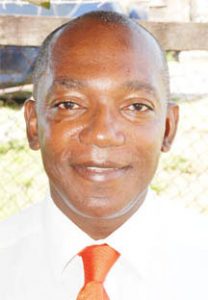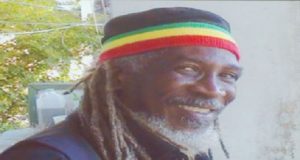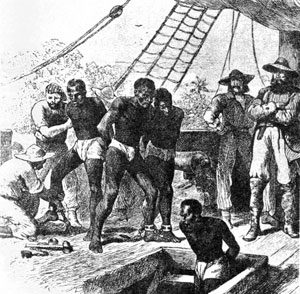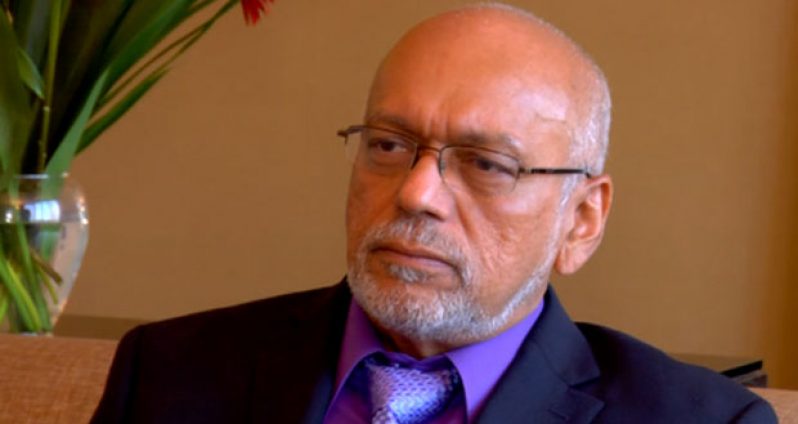WHEN slavery and Apprenticeship ended in 1833 and 1838 respectively, it brought a formal close to a dark era of unspeakable brutality, but it did not automatically abolish the psychological miseries inflicted on the oppressed.

The effects of the scars were felt by their descendants, who today are seeking reparations for their social and economic underdevelopment, which are due to policies set in train by their former colonial masters.
Distinguished Caribbean academic and Chairman of the Caricom Reparations Commission, Professor Hilary Beckles, in an address to the House of Commons on July 16, 2014, pointed to the revealing evidence.
“Jamaica, Britain’s largest slave colony, was left with 80 per cent black functional illiteracy at Independence in 1962. From this circumstance, the great and courageous Jamaican nation has struggled with development and poverty alleviation. The deep crisis remains.
“This Parliament owes the people of Jamaica an educational and human resource investment initiative,” he said, mentioning Barbados as another example.
“Barbados, Britain’s first slave society, is now called the amputation capital of the world. It is here that the stress profile of slavery and racial apartheid; dietary disaster and psychological trauma; and the addiction to the consumption of sugar and salt, have reached the highest peak. The country is now host to the world’s most virulent diabetes and hypertension epidemic.

“This Parliament owes the people of Barbados an education and health initiative.”
He noted that it is the same for The Bahamas, the Leeward and Windward Islands, Guyana, Trinidad and Tobago, Belize, and beyond.
Calls for reparation from former colonial masters have reverberated in some quarters in the Caribbean, and in recognition of the vibes, CARICOM Heads of State Sub Committee on Reparations (of which President Donald Ramotar is a member), voted unanimously in July 2013 to seek reparations.
The first step of the legal process is to have dialogue and negotiations with the European nations involved.
The Terms of Reference from CARICOM provides the framework under which the necessary historical information is gathered in a systematic way to create evidence for any claim.
Speaking with the Guyana Chronicle, Guyana Reparations Committee Chair Dr Eric Phillips said that after the relevant information is obtained and assessed by the Government and African organisations, as well as individual experts; the process going forward is through the CARICOM Reparations Commission and the CARICOM Heads of States Subcommittee on Reparations, which will initiate contact with the appropriate European nations.
DIPLOMATIC SOLUTION
There are 12 CARICOM Reparations Committees, and according to Dr Phillips, for Guyana, this means first contacting Britain and Holland to seek a resolution diplomatically and politically.
“If this fails, then the International Court of Justice is then approached under the Committee on the Elimination of Racial Discrimination (CERD) Convention, which is UN-based,” he said.
The Guyana Reparations Committee has completed its information collection and is now in the process of developing a claim based on inputs from the CARICOM Reparations Commission led by Professor Beckles, and from local inputs.
The information gathered has been shared with the Government of Guyana through Minister of Culture, Youth and Sport, Dr Frank Anthony, and Director of Culture Dr James Rose.
Local experts will also be brought into the process in an official manner in due course, Dr Phillips said, noting that eminent economist Dr Clive Thomas would be one of those individuals.
“The National Reparations Committee is not in a position to release this information to the public, as the process is ongoing and there are no definite numbers yet.
“Validation of the information collected by the Guyana Reparations Committee is an ongoing process, and evaluation methodologies will be coordinated with the CARICOM Reparations Commission for consistency, since we are dealing with a legal case,” he told the Guyana Chronicle.
STRONG CASE
General Secretary of the Guyana Rastafarian Council, Ras Ian, who sits on the Guyana Reparations Committee, told this publication that Guyana has a strong case for reparation.
He pointed out that Guyana was one of the most productive countries during slavery, noting that a slave in Guyana and Trinidad and Tobago at the time was valued at some 51 pounds, compared to 17 pounds in Jamaica and elsewhere in the region.
In Guyana, during slavery, Africans reportedly cleared, drained and reclaimed some 15,000 square miles of swampland and forest, the equivalent of some 9,000,000 acres of land. In short, all fields on which the sugar estates are now based were cleared, drained and irrigated by African labour forces. All plantations now turned villages were built by unpaid African labour.
These incidents, Ras Ian said, happened under extremely harsh conditions, resulting in a high mortality rate among slaves.
He also pointed out that after slavery had ended, the suffering of Africans continued under a policy of deliberate economic strangulation by Britain, which had handsomely compensated slave masters, but gave the slaves nothing.
Professor Beckles, an Economic Historian, in his speech to the House of Commons, noted that the British Parliament in 1833 determined that the 800,000 enslaved people in the Caribbean were worth, as chattel property, 47 million pounds. This was their assessed market value.
The Parliament determined that all slave owners should receive just and fair compensation for the official taking away of their property, and provided the sum of 20 million pounds in grants to the slave owners as fair compensation for the loss of their human chattel.
“And we know that this Parliament determined that the enslaved people would receive none of this compensation. The argument made in this House was that ‘property’ cannot receive property compensation. This Parliament, in its Emancipation Act, upheld the law that black people were not human, but property,” he said in his address.
The international historian revealed that what the British Parliament hid from the world is that it had also determined that the remaining 27 million pounds would be paid by the enslaved people to their enslavers, by means of a four-year period of free labour, called Apprenticeship.
CANNOT BE VALUED
Ras Ian has said that no amount of money can compensate for the damage inflicted on Africans by their former colonial masters. He pointed out that his “brethren” have added repatriation to the reparations drive.
He said reparation means a lot to Africans and the Rastafarian community, as it will, in a meaningful way, bring some relief to them.
Dr Phillips had said that, should Guyana succeed in its efforts, the money would go towards establishment of an African Development Bank and an African and Amerindian Development Fund.
Strong emphasis will be placed on empowering Africans financially while providing them better health care and education services.

Professor Thomas, in an interview with another section of the media, contended that the money should not be placed under the care of Government. He expressed a different view on how the money should be spent.
“The households and individuals should get the support that is estimated from the grants given for reparations and handed to the slaves. I think some of them will make constructive decisions,” he said, noting that he was confident that persons would make the best use of the compensation.
“Some of them will probably clear debts, purchase houses, probably get into some business and things that would encourage a Government to grow,” he has said.
PRECEDENT
In June 2013, the British Government compensated Kenya for losses in a bloody revolt against British rule in the 1950s.
The BBC reported that Kenyans tortured by British colonial forces during the Mau Mau uprising received payouts totalling 20 million pounds.
Then British Foreign Secretary William Hague said the UK Government recognised Kenyans were tortured, and it “sincerely regrets” the abuses that took place.
A lawyer for the victims, the BBC reported, said they “at last have the recognition and justice they have sought for many years”.
Thousands of people were killed during the Mau Mau revolt against British rule in Kenya in the 1950s.
The Jews who suffered greatly at the hands of German Leader Adolph Hitler during the Holocaust were also compensated by Germany.
The enslavement of Africans in the Caribbean has also been described as a Holocaust.
Professor Beckles, who is also Principal and Pro-Vice Chancellor of The University of the West Indies, Cave Hill Campus in Barbados, said the case of genocide is not only in respect of “our decimated native community”. He stressed that it is also important to recognise the genocidal aspect of chattel slavery in the Caribbean.
British slave ships brought 5.5 million enslaved Africans into their Caribbean colonies over a period of 180 years, and when slavery was abolished in 1838, there were just 800,000 persons remaining, a retention/survival rate of 15 per cent.
“Caricom Governments, like the Government of Great Britain, represent nations that are independent and equal. As such, they should proceed on the basis of their legitimate equality, without fear of retribution, in the best interest of humanity, and for a better future for us all,” Professor Beckles urged.
The General Assembly of the United Nations, on December 23, proclaimed the International Decade for People of African Descent, commencing 1st January 2015 and ending on 31st December 2024, with the theme ‘People of African descent: recognition, justice and development’.
The main objective of the International Decade is to promote respect, protection and fulfillment of all human rights and fundamental freedoms for people of African descent, as recognised in the Universal Declaration of Human Rights.
It is with this in mind that Guyana, under the leadership of President Ramotar and the sterling efforts of Dr Phillips, has been pushing for reparation, as this is viewed as not only a means of restoring the pride of the African people, but also as a vehicle to improve their social and economic standing in society.
By Tajeram Mohabir





.jpg)








